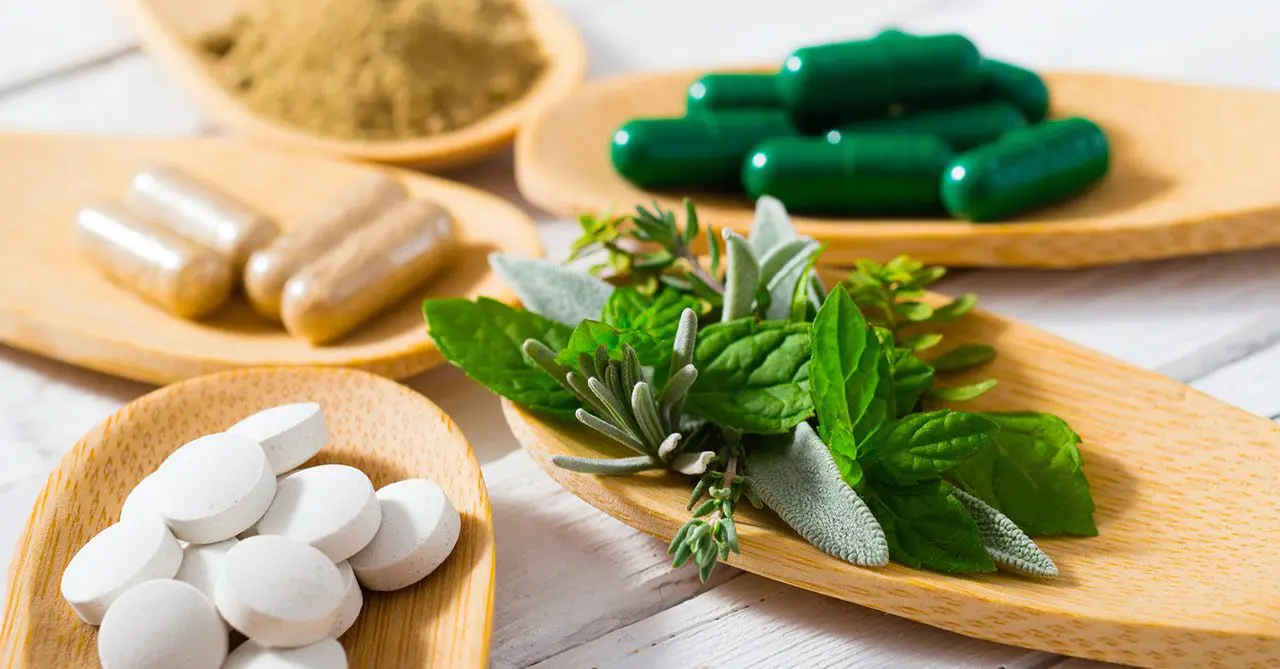
Herbal Supplements, Increase Your Health Index
In the quest for optimal health and well-being, many people are turning to herbal supplements as a potential means to enhance their overall vitality. These natural remedies, derived from plants and botanicals, offer a plethora of benefits that can contribute to a higher health index. Let's embark on an in-depth exploration of how herbal supplements can be a valuable addition to your wellness routine.
To understand the potential of herbal supplements, it's essential to first appreciate the rich history and traditional use of herbs in medicine. For centuries, different cultures around the world have relied on the healing properties of plants to address various health concerns. From ancient Ayurvedic practices in India to traditional Chinese medicine, herbs have been a trusted source of therapeutic agents.
One of the significant advantages of herbal supplements is their ability to provide targeted support for specific bodily functions. For instance, ginkgo biloba is often used to enhance cognitive function and improve blood circulation to the brain. This can be particularly beneficial for those experiencing age-related memory decline or individuals looking to boost their mental sharpness.
Turmeric, with its active compound curcumin, has gained immense popularity for its potent anti-inflammatory properties. Chronic inflammation is at the root of many modern diseases, and by incorporating turmeric supplements into your daily routine, you may be able to reduce inflammation and lower the risk of conditions such as arthritis, heart disease, and certain cancers.
Another herb, ashwagandha, is known as an adaptogen, helping the body cope with stress and promoting a sense of calm and balance. In today's fast-paced and stressful world, managing stress levels is crucial for overall health. Ashwagandha supplements can assist in regulating the body's stress response, improving sleep quality, and enhancing energy levels.
Herbal supplements can also play a vital role in supporting the immune system. Echinacea, for example, is often used to strengthen the body's natural defense mechanisms and reduce the frequency and severity of colds and flu. Elderberry is another immune-boosting herb that can help the body fight off viral infections and promote quicker recovery.
When it comes to digestive health, herbs like ginger and peppermint offer relief from common issues such as nausea, indigestion, and bloating. These supplements can help regulate digestive processes, improve gut motility, and create a more harmonious digestive environment.
It's important to note that the efficacy of herbal supplements can vary depending on factors such as the quality and purity of the product, the dosage, and individual differences in metabolism and physiology. Therefore, it's advisable to do thorough research and consult with a healthcare provider or a qualified herbalist before starting any new supplement regimen.
Quality is of utmost importance when it comes to herbal supplements. Look for products from reputable manufacturers that adhere to strict quality control standards. Ensure that the supplements are sourced from sustainable and organic farms to minimize the risk of contamination with pesticides or other harmful substances.
In addition to their direct health benefits, herbal supplements can complement a healthy lifestyle. When combined with a balanced diet, regular exercise, adequate sleep, and stress management techniques, they can have a synergistic effect on improving your overall health index.
For example, if you're maintaining a nutritious diet rich in fruits, vegetables, and whole grains, adding herbal supplements that support cardiovascular health, such as garlic or fish oil supplements derived from natural sources, can further enhance your heart health.
Let's consider a case study of an individual struggling with chronic joint pain. After consulting with a healthcare professional, they incorporated a combination of turmeric and boswellia supplements into their routine. Over time, they noticed a significant reduction in pain and inflammation, allowing them to resume their daily activities with greater ease and comfort.
However, it's crucial to approach herbal supplements with caution and avoid over-reliance or misuse. Some herbs may interact with medications or have contraindications for certain health conditions. Pregnant or breastfeeding women, as well as individuals with underlying medical conditions, should exercise extra caution and seek professional advice.
Furthermore, while herbal supplements can offer valuable support, they should not replace a proper medical diagnosis and treatment. If you have a serious health concern, it's essential to consult a healthcare provider for accurate assessment and appropriate intervention.
In conclusion, herbal supplements have the potential to be a powerful tool in your journey towards better health. By carefully selecting the right supplements based on your specific needs and health goals, and by using them as part of a comprehensive wellness approach, you can increase your health index and enjoy a more vibrant and fulfilling life.
As the field of herbal medicine continues to evolve and more research is conducted, our understanding of the benefits and applications of herbal supplements will undoubtedly expand. So, embrace the wisdom of nature and explore the possibilities that these natural remedies have to offer, but always do so with knowledge and a commitment to your overall well-being.
Remember, a healthy life is a balanced life, and herbal supplements can be a valuable piece of the puzzle in achieving and maintaining optimal health. Let them be your allies on the path to a healthier, happier you.





